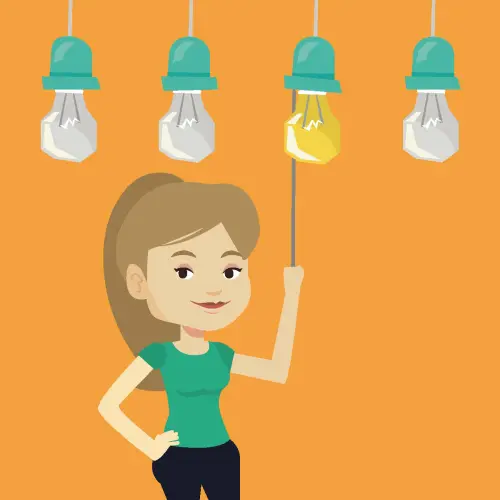Almost everyone now has a smartphone and one or more accounts with social networks. This has already removed much of the privacy. But these are not the only places where people “lose” their personal data. Through so-called “phishing mail,” malicious parties can also often obtain data from their victims. Therefore, below are some tips on how to surf the Internet and maintain your privacy as much as possible!
“We do not merely destroy our enemies; we change them.” | George Orwell,
1984
1) Don’t click haphazardly!
Everyone has received the emails from the bank about an update, expired balance or new messages in the inbox. Just click on a nice link and the bank will take care of it all for you! This sounds too good to be true, unfortunately practice teaches us the same…. Is it too good to be true? Then it is too good to be true. Do not click on the link here. Your bank will never contact you about this through the mail. Therefore, always go through the address bar to https://[naamvanuwbank].nl and check the inbox there for new messages. If you still don’t trust it, call your bank.
2) Social network settings
Heartwarming if you have booked or just experienced a great vacation! Be aware that not only your friends are watching this. If you cheerfully post when you are going on vacation, some people’s calendars will include that! It is therefore advisable to make photos and posts visible only to friends. How to do this I will briefly summarize below.
- Go to facebook privacy settings and choose “friends” here. This ensures that everything you post is automatically visible to your friends only.
- It is also advisable to change the tag settings in facebook timeline settings. This in turn is useful for rejecting any “embarrassing” photos on your timeline!
3) Linked accounts
Hey, handy say! When I log into Google in chrome, I can possibly log right into some websites with that, handy! Yes, it is convenient but is it wise? Think about the danger if a certain website leaks its user data, then your account is no longer safe. So link as few accounts as possible because if one gets cracked the rest are automatically at risk too!
4) Difficult passwords
Surely one of the most important things on the Internet is your username and password combination! Therefore, make sure these are not too easy and, if possible, different for each website. It is advisable to use at least 8 characters anyway. Also, try to use as many different characters, capital letters, punctuation and numbers as possible! See if it is possible to create nice sentences and then distort them into passwords, for example, “High Attention the Customer Factory is a top company with good service” can be turned into: “HaK=1^bM90ed3S!”. If you generated that kind of sentence for every website, it would already be a lot harder for malicious people to access your accounts.
If you are not so creative with making up passwords yourself, you can always use a password generator. These passwords can then possibly be stored in programs specifically designed for that purpose such as: lastpass ( €12,- per year ).
5) Keep your head up
Be aware that The Internet is a public space and behave accordingly. Not only your friends are watching, but also your employer, the Dutch government, the press and the police, not to mention the N.S.A. In short, make sure you always keep track of what you do and do not put online and want to share with the world!




